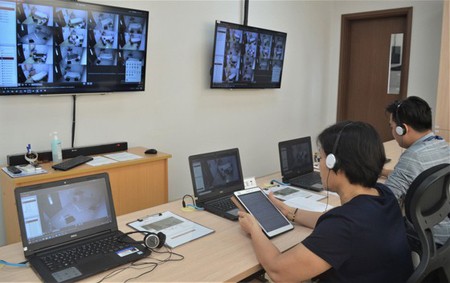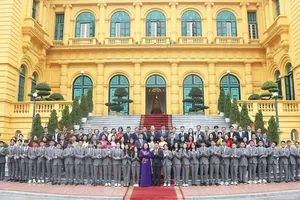
The development of information technology has positively influenced tertiary education in Vietnam, including the birth of various digital ecosystems thanks to advanced online communication technologies. This has enabled the digital transformation process to take place under favorable conditions.
According to Associate Prof. Dr. Do Van Dung, Principal of Ho Chi Minh City (HCMC) University of Technology and Education, the demands for digital transformation in universities originate from the popular use of digital communications channels like social networks, email, official websites, online TV, and mobile apps to deliver announcements to learners faster and more conveniently.
In addition, there is a need to establish various kinds of databases, both to offer students with sufficient, updated learning materials and to form a stable online learning-teaching system, with the ultimate goal to create a multi-dimensional constructive academic ecosystem that can be shared among educational institutes.
In the knowledge economy, there are four core factors for success: education and training, innovative scientific research, IT infrastructure, and a suitable policy system. The first of them aims at building capable human resources to perform necessary tasks for other factors. Therefore, tertiary education must pursue digital transformation as soon as possible so that universities can share teaching and learning materials with one another.
Director of the Database Center (under Vietnam National University – HCMC) Bui Quoc Anh stated that this university has ordered his center to develop suitable technological solutions for each department and member unit to carry out the digital transformation process.
He then insisted that the key point now is to increase the public’s awareness related to the necessity of digital transformation. “When there is strong determination among the community, it is only the matter of time and technologies for the process to be done successfully”, said Mr. Anh.
Take HCMC University of Technology and Education as an example. Since the introduction of the first digital classroom here in 2014, financed by the United States Agency for International Development (USAID), this university has launched several online learning sessions. Until now, there have been around 5,200 courses organized effectively. The interaction per year in the Learning Management System (LMS) by Pearson Education here reaches 90 million.
Regardless of such a significant role, the digital transformation process in education in HCMC still encounters various obstacles. Firstly, the IT infrastructure somehow cannot fully satisfy the learning and interaction needs of students. More importantly, the awareness about this essential process among certain academic staff is not deep enough. Finally, the digital resources are not sufficient and synchronous for a smooth development of an academic ecosystem.
It is high time for the local authorities to prepare a comprehensive digital transformation program for all universities in HCMC, along with a detailed long-term plan for the period from 2020-2025 and a vision to 2030. This program, when introduced, might be able to unite the minds of related people for a stronger determination to carryout digital transformation thoroughly in education.
























